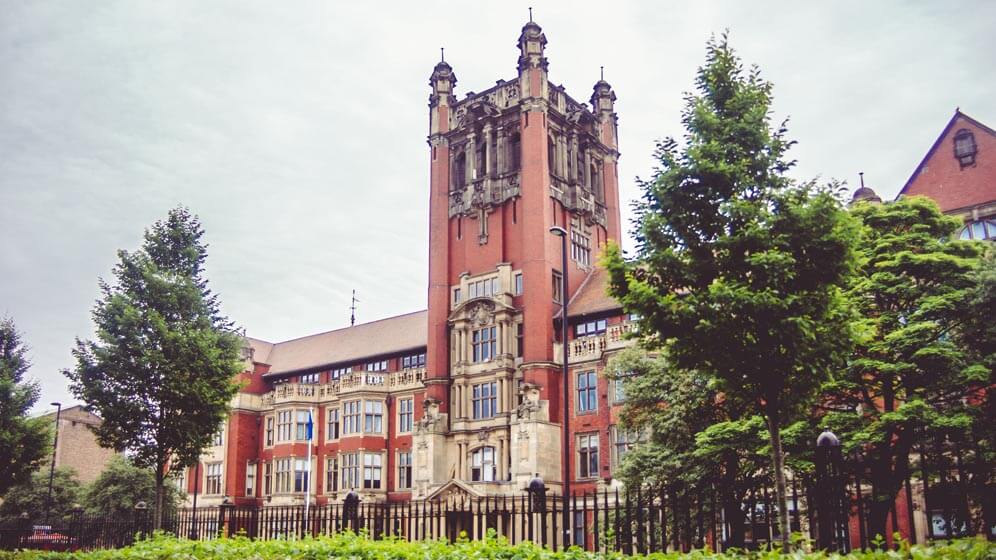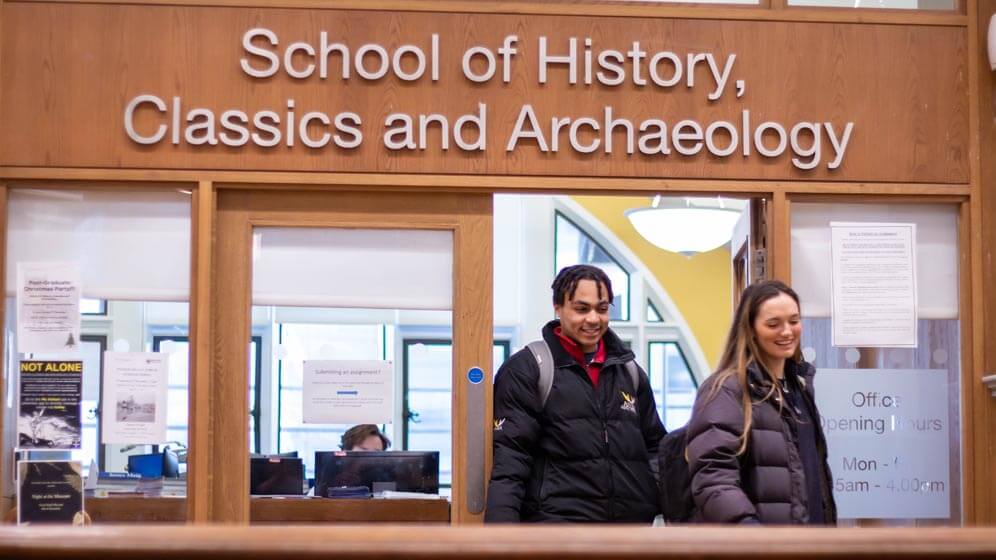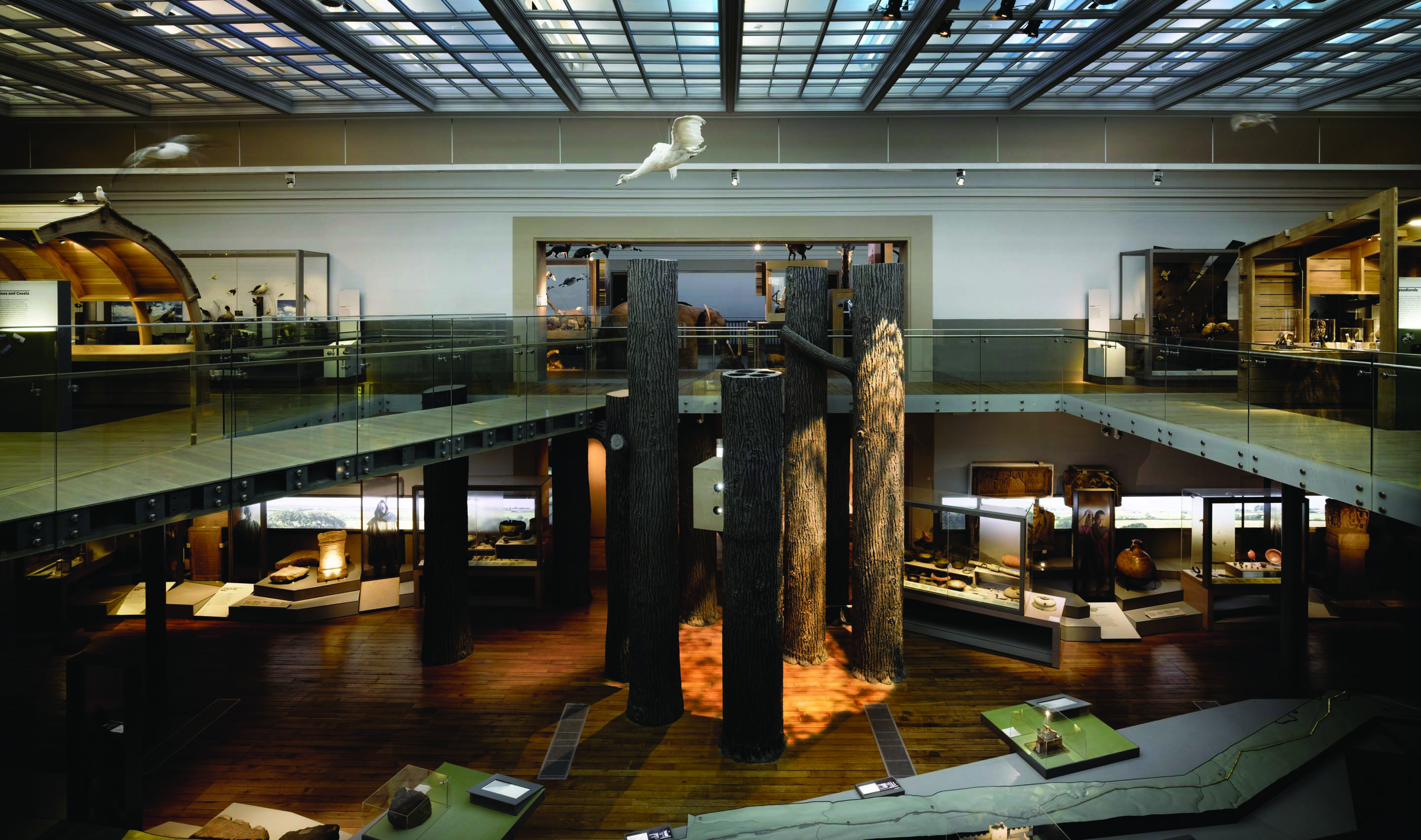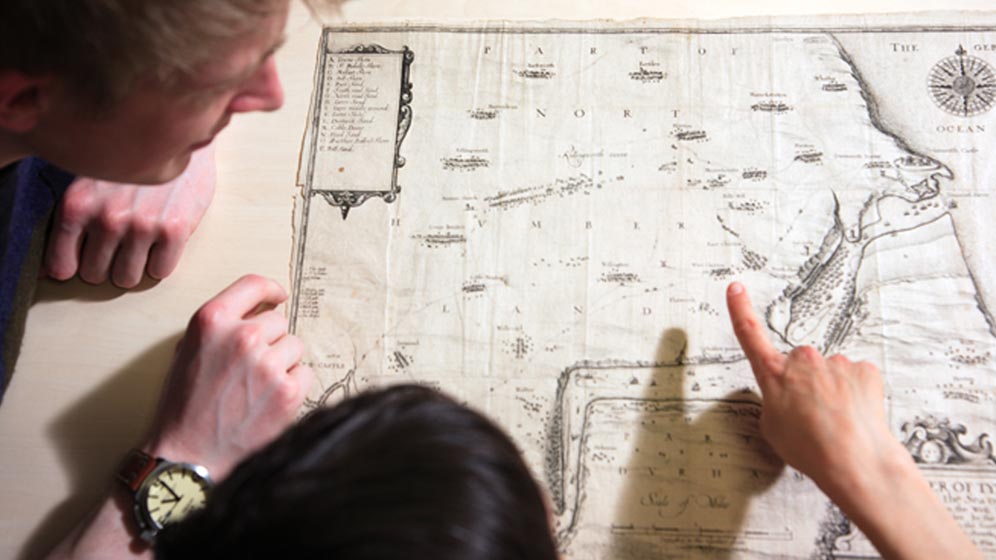Classical Studies BA Honours
- UCAS code: Q810
- Full time
- 3 years
Explore the rich heritage and diverse cultures of Ancient Greece and Rome – from literature and art to religion and science – and discover their impact on the modern world.
You are currently viewing course information for entry year: 2026
Next start date:
- September 2026
UCAS Institution name and code:
- NEWC / N21
Course overview
Immerse yourself in the study of the Greek and Roman world on this three-year Classical Studies BA Honours degree. You'll focus on developing your knowledge of how ancient societies thought about and presented their world through culture.
Exploring everything from literature, history and art, to science, architecture and religion, you'll learn about the impact Classical tradition has had on Western civilisation. You'll also learn about the range of approaches available to study it. You'll also have the option of studying Latin or Ancient Greek from beginners or intermediate level.
Alongside core modules in Greek and Roman literature, you'll explore a variety of topics, including Greek and Roman religion, slavery in Greco-Roman Antiquity, the life and afterlife of Alexander the Great, and women in the ancient world.
You will have the opportunity to study ancient Greek and Latin language, from beginners’ to advanced level. You will also choose to specialise in subject areas of interest to you, preparing you for a broad range of employment opportunities in a wide variety of fields.
READ MORE
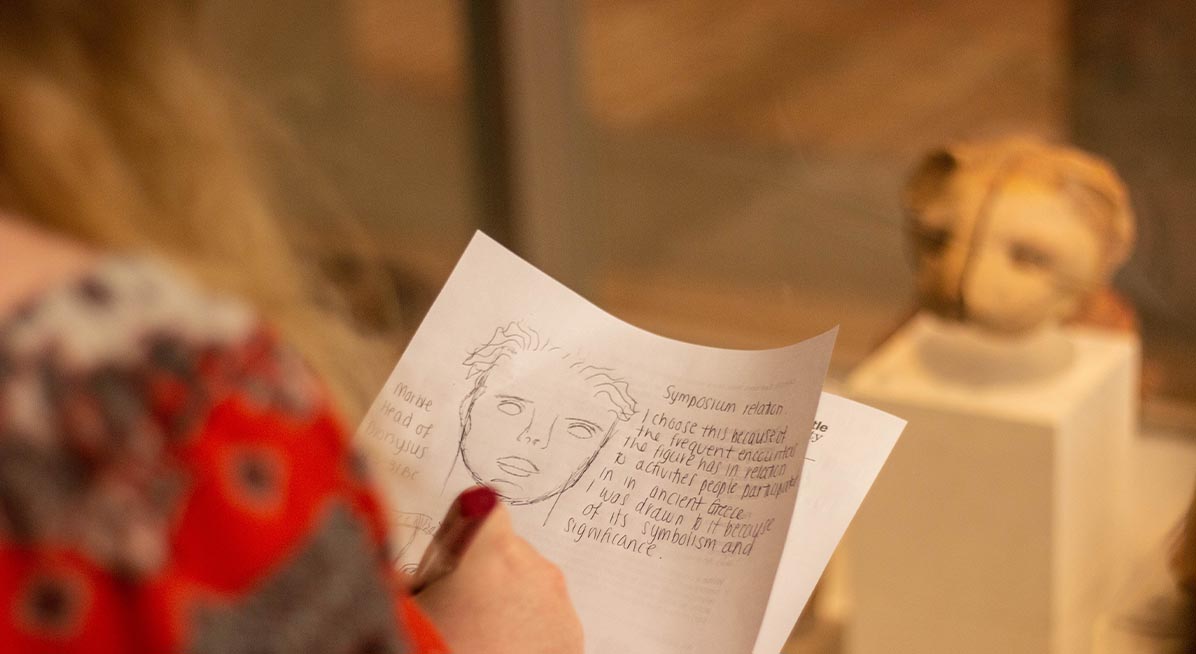
Your course and study experience - disclaimers and terms and conditions
Please rest assured we make all reasonable efforts to provide you with the programmes, services and facilities described. However, it may be necessary to make changes due to significant disruption, for example in response to Covid-19.
View our Academic experience page, which gives information about your Newcastle University study experience for the academic year 2025-26.
See our terms and conditions and student complaints information, which gives details of circumstances that may lead to changes to programmes, modules or University services.
Quality and ranking
Professional accreditation and recognition
All professional accreditations are reviewed regularly by their professional body.
Modules and learning
Modules
The information below is intended to provide an example of what you will study.
Most degrees are divided into stages. Each stage lasts for one academic year, and you'll complete modules totalling 120 credits by the end of each stage.
Our teaching is informed by research. Course content may change periodically to reflect developments in the discipline, the requirements of external bodies and partners, and student feedback.
Optional module availability
Student demand for optional modules may affect availability.
Full details of the modules on offer will be published through the Programme Regulations and Specifications ahead of each academic year. This usually happens in May.
To find out more please see our terms and conditions
We lay the foundation for thinking about and approaching the Greek and Roman past, through two compulsory modules introducing you to broad aspects of Greek and Latin literature, with a focus on key texts from Classical Athens and the Roman Republic.
For your four optional modules you can choose from a range of ancient language, ancient history or interdisciplinary module.
Modules
| Compulsory Modules | Credits |
|---|---|
| The World of Latin Literature | 20 |
| Tragedy, Comedy, History: The World of Greek Literature | 20 |
You will undertake a dedicated research training module, ‘Researching the Classics’, which places emphasis on helping you to develop your abilities to pursue independent research, in preparation for Stage 3.
The rest of your modules can be chosen from a wide selection of topics relating to Greek and Latin literature, Greek and Roman history or archaeology, including options to learn Greek and Latin language.
Modules
| Compulsory Modules | Credits |
|---|---|
| Researching the Classics | 20 |
You'll undertake a major research project – a dissertation on a topic of your choosing – for which you'll be guided and supervised by an expert member of the academic staff.
You'll choose four further optional modules from a diverse range of topics, drawn from the research expertise of our lecturers.
Modules
| Compulsory Modules | Credits |
|---|---|
| Dissertation in Classics and Ancient History | 40 |
We base these figures and graphs on the most up-to-date information available to us. They are based on the modules chosen by our students in 2024-25.
Teaching time is made up of:
- scheduled learning and teaching activities. These are timetabled activities with a member of staff present.
- structured guided learning. These are activities developed by staff to support engagement with module learning. Students or groups of students undertake these activities without direct staff participation or supervision
Teaching and assessment
Teaching methods
You'll be taught through a range of teaching methods and activities, including:
- lectures
- seminars
- workshops
- tutorials
- film-screenings
Assessment methods
You'll be assessed through a combination of:
-
Assignments – written or fieldwork
-
Coursework
-
Dissertation or research project
-
Essays
-
Examinations – practical or online
-
Portfolio submission
-
Presentations
-
Seminar tasks/exercises
Skills and experience
Practical skills
During your degree, you will have the chance to take part in extracurricular field trips that take advantage of the North East's rich history such as:
- the nearby World Heritage Site of Hadrian's Wall
- the classically inspired Belsay Hall
- Wallington Hall
You will be able to take advantage of the resources of the Great North Museum, with its extensive ancient collections.
These practical experiences complement your understanding of the topics you are studying, allowing you to analyse and interpret artefacts, and carry out research using a wide range of archives.
Business skills
You'll gain practical skills and experience working with the outstanding Greek, Roman and Etruscan collections and antiquities at the Great North Museum: Hancock.
Research skills
In your final year, using the skills developed during your degree, you’ll write a dissertation on a topic of your own choosing. During this, you’ll hone your investigative skills as you undertake independent research with access to extensive print and electronic resources, as well as archives and special collections.
Opportunities
Study abroad
Experience life in another country by choosing to study abroad as part of your degree. You’ll be encouraged to embrace fun and challenging experiences, make connections with new communities and graduate as a globally aware professional, ready for your future.
You have the opportunity to study abroad in between Stage 2 and 3. You can study in an EU country as part of a study abroad exchange or further afield.
Find out more about study abroad.
Work placement
Apply your practical skills, increase your confidence and gain real-life work experience to accelerate your career. Take a 9-12-month industrial placement in the UK or abroad. Work placements usually take place in stage 3 of your studies and extend your degree by one year.
Facilities and environment
Facilities
You'll be based in the School of History, Classics and Archaeology, located at the heart of campus in the historic Armstrong Building. You'll have access to excellent study resources including:
- the Philip Robinson University Library, which houses over 800,000 books and provides access to ca. 1.8m e-books
- Special Collections & Archives – a rich collection of archival material, historical medical texts and rare books
- The Great North Museum: Hancock, our on-campus museum which holds an extensive collection of Greek, Roman, and Etruscan artefacts.
-
The Wolfson Archaeology Laboratory - with facilities for use-wear analysis of bone, stone, metal and glass, and furnaces for research in material culture or experimental archaeology.
- a Material Culture Analytical Suite kitted out with microscopes, and 2D and 3D scanning equipment.
Find out more about the School of History, Classics and Archaeology
Support
You'll be welcomed into a vibrant and supportive community. We will ensure you are well placed to achieve your highest potential and are equipped for career success.
You'll have the support of an academic member of staff as a personal tutor throughout your degree to help with academic and personal issues.
Peer mentors will help you in your first year. They are fellow students who can help you settle in and answer any questions you have when starting university.
Your future
You'll develop a mix of practical, intellectual and transferable skills desirable to employers. This will give you an excellent choice of further study and career opportunities open to you on completion of your studies.
Classics graduates find themselves in a diverse range of careers, including:
- Heritage and Museums
- Journalism and Publishing
- Education
- Law and Legal Services
- Marketing
Make a difference
Sorry, you need JavaScript to view this video
Careers support
Our Careers Service is one of the largest and best in the country, and we have strong links with employers. We provide an extensive range of opportunities to all students through our ncl+ initiative.
Visit our Careers Service website
Recognition of professional qualifications outside of the UK
If you’re studying an accredited degree and thinking about working in Europe after you graduate, the best place to find current information is the UK Government’s guidance on recognition of UK professional qualifications in EU member states. This official resource explains whether your profession is regulated in another country, what steps you need to take, and which organisation you should contact.
Entry requirements
All candidates are considered on an individual basis and we accept a broad range of qualifications.
The entrance requirements and offers below apply to 2026 entry.
| A-Level | |
|---|---|
| International Baccalaureate | |
|---|---|
Other UK and the Republic of Ireland qualifications
Alternative offers at Newcastle
Through one of our contextual or alternative offer routes, you could receive an offer of up to three grades lower than the typical requirements.
Contextual offers
We use certain contextual data from your UCAS form, alongside your application, to consider challenges that you may have faced in your education and the potential effect this may have had on your qualifications. This means you may be eligible to receive a lower contextual offer.
PARTNERS offers
One of the largest and longest support entry routes to university of its kind for students from underrepresented backgrounds. We support applicants from application through to study.
Realising Opportunities offers
A unique programme delivered in collaboration with 10 leading, research-intensive universities in the UK. The programme is open to students in Year 12/first year of college.
Pathways to Newcastle offers
Pathways to Newcastle, our national skills entry route, is available for specific subject areas.
High Performance Athletes
We support promising athletes at the application stage, who compete in regional, national or international levels in their sport.
Qualifications from outside the UK
English Language requirements
Entrance courses (INTO)
International Pathway courses are specialist programmes designed for international students who want to study in the UK. We provide a range of study options for international students in partnership with INTO.
These courses are specifically designed for international students who want to study in the UK and progress onto one of our undergraduate degrees. Our International Study Centre, has a range of study options including:
- International Foundation
- International Year One
- English Language courses
Find out more about International Pathway courses
Admissions policy
This policy applies to all undergraduate and postgraduate admissions at Newcastle University. It is intended to provide information about our admissions policies and procedures to applicants and potential applicants, to their advisors and family members, and to staff of the University.
University Admissions Policy and related policies and procedures
Credit transfer and Recognition of Prior Learning
Recognition of Prior Learning (RPL) can allow you to convert existing relevant university-level knowledge, skills and experience into credits towards a qualification. Find out more about the RPL policy which may apply to this course.
Tuition fees and scholarships
Tuition fees for academic year 2026-2027
The 2026 entry home fees have not yet been confirmed.
| Qualification: BA Honours | |
|---|---|
|
Home students full time 3 years |
Tuition fees (Year 1)
Not set |
|
International students full time 3 years |
Tuition fees (Year 1)
24,500 |
Year abroad and additional costs
For programmes where you can spend a year on a work placement or studying abroad, you will receive a significant fee reduction for that year.
Some of our degrees involve additional costs which are not covered by your tuition fees.
Scholarships
Find out more about:
Open days and events
You'll have a number of opportunities to meet us throughout the year at our on-campus and virtual open days.
You'll be able to:
- explore our beautiful campus
- find out about our vibrant city
- discover what students think about studying at Newcastle
You'll also have the opportunity to speak to academic staff and find out more about the subjects you're interested in.
Find out about how you can visit Newcastle in person and virtually.
We regularly travel overseas to meet with students interested in studying at Newcastle University. Visit our events calendar to find out when we're visiting your region.
How to apply
Apply through UCAS
To apply for undergraduate study at Newcastle University, you must use the online application system managed by the Universities and Colleges Admissions Service (UCAS). All UK schools and colleges, and a small number of EU and international establishments, are registered with UCAS. You will need:
- the UCAS name and institution codes for Newcastle University (NEWC/N21)
- the UCAS code for the course you want to apply for
- the UCAS 'buzzword' for your school or college
If you are applying independently, or are applying from a school or college which is not registered to manage applications, you will still use the Apply system. You will not need a buzzword.
Apply through UCASApply through an agent
International students often apply to us through an agent. Have a look at our recommended agents and get in touch with them.
Get in touch
By phone
Call us on +44 (0) 191 208 3333 and press option 1. Our opening hours are Monday to Friday 10am until 4pm.
Live chat
Our NCL chatbot might be able to give you an answer straight away. If not, it’ll direct you to someone who can help.
You'll find our NCL chatbot in the bottom right of this page.
Online
Chat to our students
Choosing a university is a big decision. If you've got questions about a particular course, student life or the city of Newcastle, why not chat to our friendly students or graduates!
Keep updated
We regularly send email updates and extra information about the University.
Receive regular updates by email






